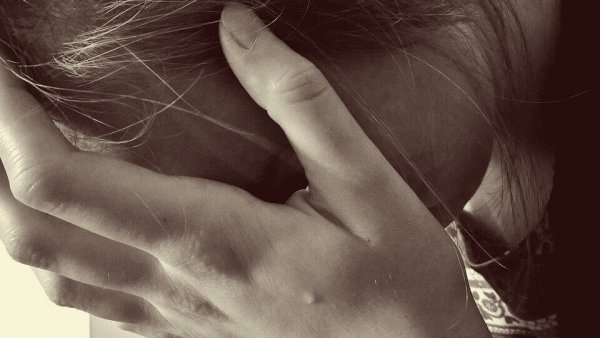When Envy Turns Seriously Destructive

We have all been jealous at some point in time. Whether we were jealous of their looks, achievements, or luck, no one is completely unfamiliar with the feeling.
Now then, there’s a certain kind of envy that could be called healthy. This kind doesn’t leave that bitter taste in our mouth. It’s more like a little tap on our shoulder that points out something we want or would like to change, and leaves an aftertaste that’s more like sadness or nostalgia. Healthy envy isn’t as bitter or destructive as the pathological kind.
“Envy is a declaration of inferiority.”
-Napoleon-
Listening to Envy So It Can Help Us
Envy, whether healthy or destructive, tells us something’s missing inside. Or at least it points out something we think we don’t have. It might reveal a feeling of inferiority that is keeping us from having healthy relationships. Or maybe it is reminding us of that dream that got lost somewhere along the way.
Whichever the case, it always has something to tell us. That’s why it’s so important to listen to it.

We won’t gain anything by hiding it or denying it. Envy is there and wants to tell us something. If it didn’t, we wouldn’t feel it like a knife in our chest when we hear about other people’s joy and prosperity. We wouldn’t care.
When we feel envy it feels like something stirring inside us. That’s why it’s important to listen to it. We should figure out what it wants to say to us, accept it, and do something about it. It’s in our hands, not anybody else’s. The only person who can decide what to do with that unfulfilled dream is us. Let’s not forget that.
Pathological Envy Destroys Us
It’s true, we can’t always fulfill all our dreams. But maybe we can modify them to the current situation and work hard to make them come true. That’s why it’s normal to feel that little sting once in awhile when we see someone achieve something we’ve never been able to.
The problem is when that envy turns into the central focus of our interactions with other people. When it dominates our relationships and we start to constantly compare ourselves to others. The only thing that will do is keep us from living our own lives.
We’re focusing our criticism outwards. We look for other people’s flaws, mistakes, and weaknesses. It’s a punishing attitude that keeps us from being happy for our people.

What comes next? Hate. Our happiness depends on other people’s misfortune, and their happiness means our dissatisfaction. And unfortunately, it might blind us when it comes to finding a solution to what’s gone wrong.
Turning Negative Energy Positive
When it comes to envy and all it entails, we must turn that energy (directed at criticizing and looking for other people’s “flaws”) positive. We must search for what really makes us happy. So we redirect all that energy we would direct outside back to our inner world.
We can only compare ourselves against ourselves. It’s important to believe that comparisons are truly useless. Every human is unique and has their own strengths and weaknesses.
Why bother comparing ourselves with others? We’re different people, we haven’t experienced the same things, and we don’t see the world the same way…

Everyone is built differently. There will be people who are “better or worse” than us at certain things, and vice versa. We really have to accept that if we don’t want to get into the life-and-death game of comparisons.
One person might be awful at math, but it might be extremely easy for another. But the second person might not be as creative as the first. Each person is special.
To conclude, only by living our own lives can we focus on what we want to be, and how we want to do it. So, moving forward we don’t want envy. We need acceptance. Then we will be capable of pushing ourselves where we want to go.
This text is provided for informational purposes only and does not replace consultation with a professional. If in doubt, consult your specialist.








